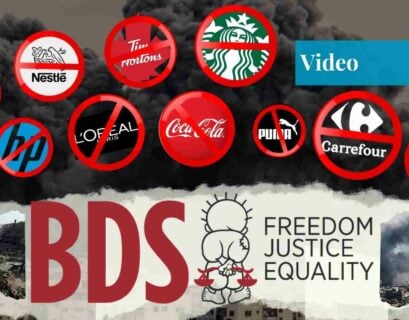Mr. Muhammad Akbar has a Bachelor's in IR from National Defence University Islamabad.
Oily History
The US-Saudi Arabia relations are mostly based on oil, weapons and “an army of lobbyists”. The US exports about 5,783 barrels of crude oil every day and a considerable amount of those crude oil barrels are provided by Saudi Arabia. There had been discord that gave way to the Oil Embargo of 1973.
King Faisal imposed an oil embargo on many countries including the United States, causing the costs of oil to skyrocket globally, ultimately resulting in an energy crisis all over the world. As a result, global politics and the global economy were significantly affected. The events that led to the embargo, however, started way before 1973.
The Organization of the Petroleum Exporting Countries, an organization consisting of five founding member states (Iran, Iraq, Kuwait, Saudi Arabia and Venezuela), was founded in Baghdad in 1960. The OPEC today is comprised of 13 countries. The purpose of the intergovernmental organization was to regulate the oil prices and to provide financial as well as technical assistance to its member countries.
The Bretton Woods Agreement
The Bretton Woods Agreement was signed in 1944 to set up a new regulated global currency system. The global currency which was the gold standard at that time got replaced with the US Dollar. The countries signing the Bretton Woods Agreement would have to maintain fixed exchange rates between the US Dollar and their respective currencies.
In August of 1971, the US banished the Gold Exchange Standard, ultimately pulling out of the Bretton Woods Agreement. Due to this, the dollar depreciated. The OPEC countries were hugely affected by the plummeting value of the dollar, as all their oil contracts were priced in US Dollars. The OPEC countries were left infuriated after this unexpected pull out from the Bretton Woods Accord.
Yom Kippur War
On the 6th of October, 1973, Egypt and Syria launched a coordinated attack on Israel on the Jewish Holy Day, Yom Kippur. The purpose of the attack was to gain the territory back, which was lost to Israel in 1967. The Egyptian and Syrian forces had almost overcome Israel, until the involvement of the US in the war.
US President Richard Nixon ordered to provide Israel with weapons as well as other supplies, known as Operation Nickel Grass. The tide had turned to the Syrian and Egyptian forces, mainly due to the operations carried out by the US to aid Israel in the war. This ended in increased tensions between the United States and OPEC.
On the 17th of October, OPEC initiated an oil embargo against the US and the allies of Israel, because of their support for Israel in the Yom Kippur War. The countries also cut down the oil production to 5% initially.
The Effects of the 1973 Oil Embargo
Prior to 1973, Saudi Arabia supported the separation of oil and politics. However, after the Yom Kippur War, infuriated by the questionable actions of the United States, King Faisal, along with the other member nations of the OPEC, successfully initiated an oil embargo on United States, Netherlands, Rhodesia, South Africa and Portugal.
Oil supply to these countries had been completely stopped, with gradually decreasing production per month. Production had been cut to 25% as of December 1973. The actions of the US are widely blamed for the economic crisis of 1973-74. The increase in oil prices aggravated inflation, ultimately resulting in the decline of the US economy. Massive nation-wide panic and gas shortage was seen.
Gas Shortage
Cars would be seen in huge lines waiting for gas, only to be informed later that the station was out of gas. Delivery trucks were not able to provide deliveries at time, which distressed businesses. The increase in gas prices decreased the demands for other goods and services, as people could barely afford gas. To cope with the problem of a limited supply of gas, a speed limit of 55 miles per hour was imposed for cars in order to save more gas.
Furthermore, odd-even rationing was done, meaning cars with an odd or even last number on their license plates would get gas only on odd or even days, respectively. The government had asked citizens to avoid Christmas lighting as well as commercial lighting to preserve energy.
Excessive Prices of Oil
Saudi Arabia had benefitted greatly from the embargo, as the price of one oil barrel increased from $3 to $12 per barrel, and hence the Kingdom had quickly become the world’s largest oil and gas producer. The revenue gained from the oil and gas industry made up almost half of the total national revenue of Saudi Arabia. While the main motive of Saudi Arabia was to “punish” Israel’s allies, it realized the impact that it had on the world through oil.
The United States was ravaged to the point that it considered military action to forcibly seize oilfields in Saudi Arabia, Kuwait and Abu Dhabi. However, no such explicit plan was acted upon. In the United States, the price of oil had increased 2x than before, and by 1974, the prices had quadrupled.
Although the use of domestic oil increased, it was not enough for the citizens. By the last week of February 1974, 20% of the gas stations in America completely ran out of gasoline. The 1973 oil crisis and the 1973-1974 stock market crash were some of the first of the major events which had long-lasting effects on the economy of the United States.
Ending the 1973 Oil Embargo
By the end of the embargo, oil prices had increased to nearly 300%. Project Independence was announced by the Nixon administration after realizing the dependence of America on foreign oil. The initiative was to promote the use of domestic oil. Diplomatic efforts were done with the allies of the US in order to regulate the prices of oil.
President Richard Nixon, along with the Secretary of State Henry Kissinger, began initial discussions with the Arab members of OPEC to end the embargo. US also negotiated with Syria, Egypt, and Israel to pull out the military from the Sinai and Golan Heights. Israel pulled its military from the Egyptian and Syrian territories, providing enough evidence for the Arab members of OPEC to end the embargo.
The negotiations were successful, as the Arab oil ministers were convinced and lifted the embargo on the United States in the March of 1974. After the end of the embargo, US had implemented several policies to decrease the dependence on foreign oil and to prevent events such as the 1973 oil embargo in the future.
The US triggered new measures for managing domestic oil reserves as well as energy conservation, making significant efforts and by 2018, the US was once again the largest oil producing country in the world.
If you want to submit your articles and/or research papers, please check the Submissions page.
The views and opinions expressed in this article/paper are the author’s own and do not necessarily reflect the editorial position of Paradigm Shift.


















